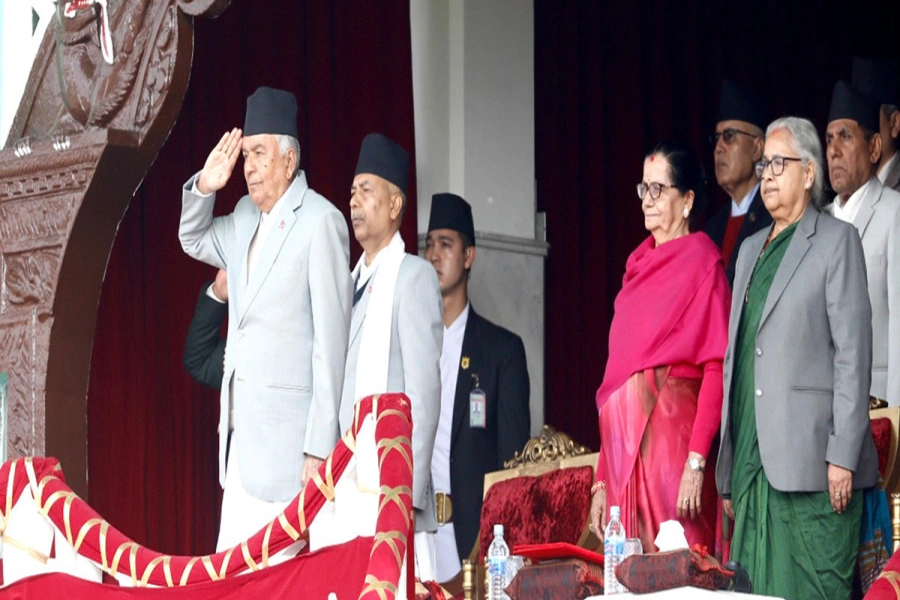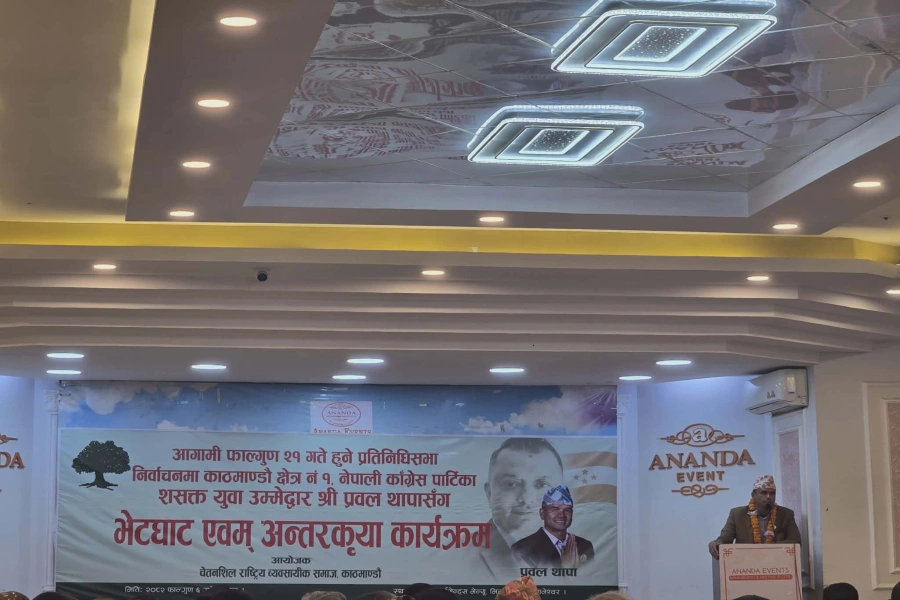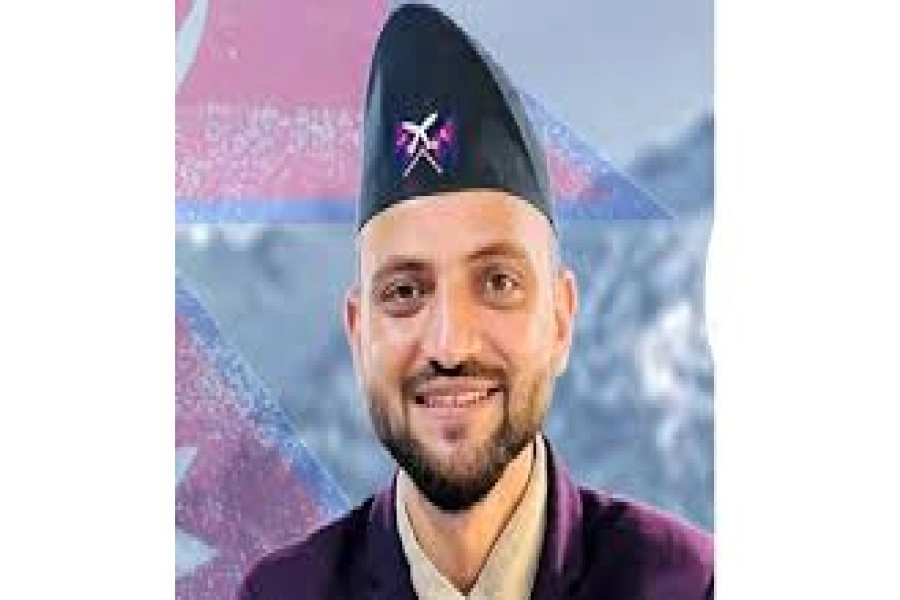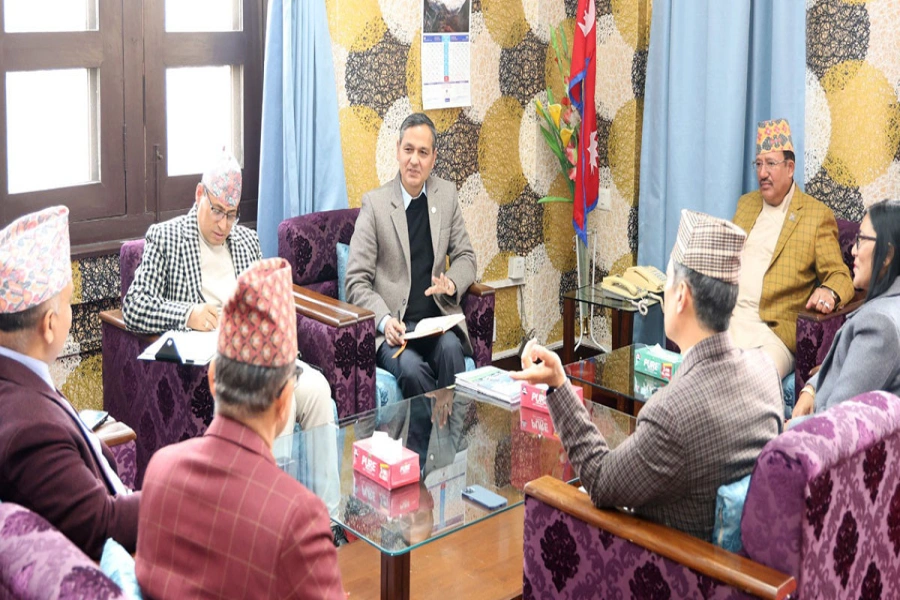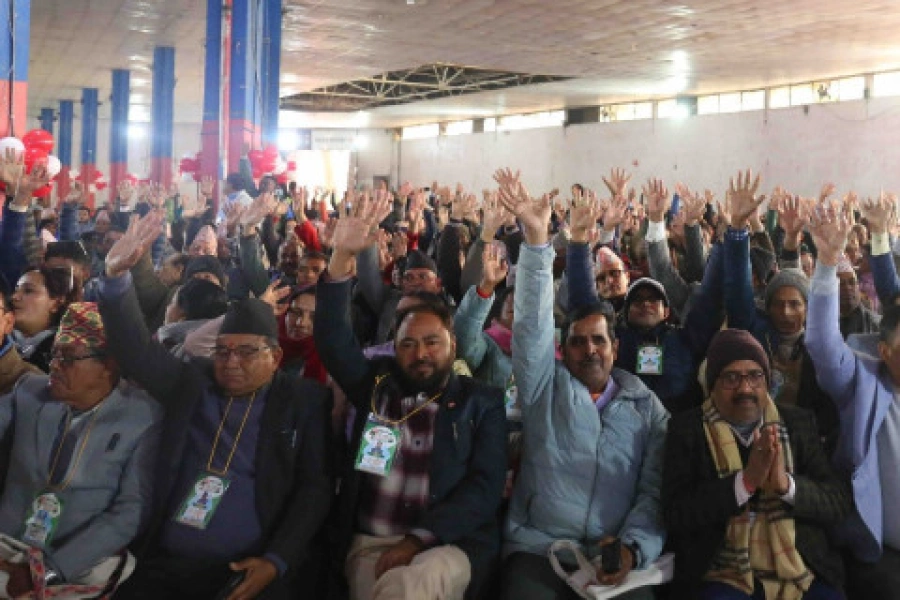KATHMANDU, March 31: Prime Minister KP Sharma Oli said that removing Kulman Ghising from the position of Executive Director of the Nepal Electricity Authority (NEA) is a routine decision.
While addressing the House of Representatives on Monday, PM Oli stated that transferring or dismissing employees and assigning new responsibilities follows a normal administrative process. He emphasized, "A departmental minister can remove an employee if working together becomes inconvenient. This is a natural process."
PM Oli argued that discussions about Ghising’s dismissal from the position of Managing Director of NEA are inappropriate in Parliament as it is already a sub judice case. Stating that legal remedies are available for grievances concerning government actions, Oli emphasized that the issue is under judicial review.
Opposition parties have repeatedly obstructed parliamentary sessions following Ghising’s dismissal, demanding a response from the PM Oli. “Generally, if a departmental minister feels that an employee is not loyal to them, the chain of command doesn’t function properly,” he further said.
PM Oli also assured that the minister’s performance will also be evaluated in due course of time. Oli also urged lawmakers to adhere to standards, social norms, and decorum by refraining from further debate on the matter.
Full Text of Prime Minister KP Sharma Oli's Address to the House of Representatives
Honorable Speaker,
1. Official Visit to Thailand and Participation in the BIMSTEC Summit
I will depart for Bangkok on April 1 (19th Chaitra) to begin an official visit to Thailand, a friendly nation. This visit marks the first official visit by a Nepali Prime Minister in 65 years since Nepal and Thailand established diplomatic relations. Despite Thailand's close ties with Nepal and frequent use as a transit point, no official visit had taken place until now. This visit will bridge that gap, making it a significant milestone.
On April 2, I will hold bilateral talks with the Honorable Prime Minister of Thailand.
We will sign two Memorandums of Understanding (MoUs) on tourism and culture. Additionally, six MoUs between non-governmental sectors will be signed in the presence of both prime ministers.
After the bilateral talks, I will participate in a joint press briefing with the Thai Prime Minister.
I will conclude the one-day official visit after meeting His Majesty the King of Thailand.
Former Prez Bhandari congratulates Oli three days after his vic...
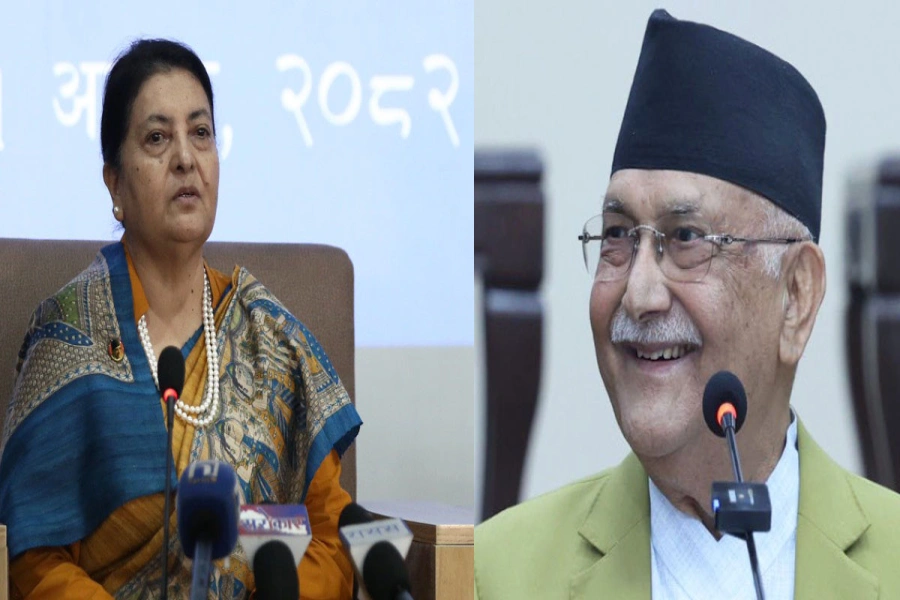
On April 3 (21st Chaitra), I will meet and discuss with prominent Thai business leaders in the morning. In the afternoon, I will deliver an address at the Asian Institute of Technology.
In the evening, I will join the official dinner for BIMSTEC Summit leaders.
Since most leaders from member countries will arrive in Bangkok only on April 3, scheduling is tight. However, I plan to hold sideline meetings with as many leaders as possible after the summit.
On April 4, I will take part in the BIMSTEC Summit. In the morning, I will sign the Maritime Transport Cooperation Agreement. In the afternoon, I will address the summit.
In the evening, I will attend an event at the Nepali Embassy, marking the conclusion of my visit.
On April 5, I will return to Nepal.
This visit serves two main purposes: strengthening bilateral ties with Thailand through an official visit and participating in the BIMSTEC Summit. In this context, I have informed this esteemed House about the sideline engagements planned during the visit.
2. Contemporary Issues
On March 28, the administration informed me about two political events. Both events were stated to be peaceful and within the constitutional framework. The government, while ensuring peace and order, advised the organizers to be cautious of any potential unwelcome incidents, and upheld the constitutional right to protest and express criticism.
The Socialist Front, a leading political faction in this esteemed House, held a grand rally at Exhibition Road in Kathmandu. They publicly expressed their views, issued a warning to the government, and reaffirmed their commitment to the constitution and system.
I thank the organizers of this peaceful event, which included a peaceful march. I believe this is the proper way to strengthen our federal democratic republic.
The authorities allocated a venue for another rally at Tinkune in Kathmandu. There were some doubts and ambiguities regarding the organizers of this event. While the rally's stated objectives raised concerns, there was ambiguity because some of the names of the organizers were leaders from political parties present in this esteemed House.
However, the organizers at Tinkune did not hold the rally as they had previously informed the administration. Instead, they initiated a provocative demonstration with political slogans, causing the crowd to swell. It was not a rally or a speech; the so-called "people's commander" drove his car through the police barricades, breaking into a prohibited area. In an attempt to control the crowd, the administration faced violent actions, including attacks on the police, stone-throwing, snatching police guns, engaging in hooliganism, physical assaults, and looting.
Over time, the crowd escalated their criminal activities, including stone-throwing, vandalism, arson, and looting of private homes, public buildings, media houses, party offices, pharmaceutical factories, and vehicles. They not only set fire to private homes but also locked people inside and burned them alive in a brutal and violent act. Arson occurred at the international airport as well, and terrorists set fire to inflammable substances, causing explosions. The police vehicles were not spared; even fire trucks, which had arrived to extinguish the flames, were attacked.
All these actions are reprehensible and regrettable. The administration will take strict action against anyone involved in these incidents, regardless of their identity or cover. The Home Minister will present a detailed report on the incident at the appropriate time in this House.
The investigation into those involved in the incident has started. The government is currently identifying the planners and others involved. I will provide a detailed report once the investigation is complete, as I have stated earlier.
To understand the background of this incident, we must study the events from about a year ago. Since then, an element has been actively trying to spread distrust, hatred, and confusion about the government, the system, and the constitution. This element has sought opportunities to disrupt communal harmony by making unnecessary comments on sensitive topics like religion, culture, and traditions, and inciting attacks on specific communities. They have manipulated the emotional sentiments of debtors by claiming they do not need to repay loans while actively working to destabilize banks and financial institutions.
Meanwhile, former King Gyanendra Shah declared on February 19 that he would "move forward and seek support." Immediately afterward, people began organizing welcome programs in various places, inciting public sentiment. On March 9, they organized a so-called “welcome procession.” Then, on March 27, a person who had been causing social unrest was invited to a private residence, where the so-called "people's commander" was appointed and tasked with carrying out violent acts.
The initial study clearly shows that former King Gyanendra Shah violated the agreement made after the historic decision of the Constituent Assembly. At that time, as a citizen, he had the right to live peacefully, exercise his legal and constitutional rights to conduct business, and, as a former head of state, the government had the responsibility to ensure his security. The government also allowed him to use Nagarjun Durbar and his mother’s residence at the Narayanhiti Durbar complex. Honorable Member of the National Assembly and former Home Minister Krishna Prasad Sitaula managed the agreement on behalf of the government.
(As the Rastriya Prajatantra Party members caused a disturbance during the speech...) "This is not about the rules, I am questioning actions that violate and undermine the constitution. Everyone must respect the system in this country, everyone must respect the system. Simply making noise doesn’t justify obstructing politics and the Parliament."
No one involved in criminal activities should receive immunity, including former King Shah. Shouldn’t someone who declares, “I will become king again and destroy the system” be required to publicly express their views on these interconnected events? A "people's commander" who incites others to kill, the organizer of a campaign led by individuals rejected by history, the destruction of wealth, and the looting-how can someone with ambitions to rule silently hide under the covers?
He is the primary person responsible for all these events, and he must take responsibility.
3. Governance and Administration
Parliament has been disrupted for the past few days. It is natural to raise questions about good governance and the issues that have compromised it. This esteemed House is the place to raise questions or offer support regarding the government's actions.
However, the current issue concerns one employee and is relatively simple. The disruption in the House has hindered important parliamentary work.
I do not believe this is the place to comment on the merits or faults of civil servants. A proper process exists for that. This House has established procedures for rewarding good work and taking action against those at fault.
Let me clarify: Generally, if a departmental minister feels that a staff member is disloyal, the chain of command breaks down. Whether the departmental minister's feelings are right or wrong will also undergo scrutiny, and this will be examined in the appropriate forum.
In such cases, actions like transfers, holding a position in reserve, requesting clarification, issuing warnings, or removing from position can be taken. This is not exclusive to the current government; every government has followed this practice. It happens now, and it has always happened.
This issue is currently under consideration by the esteemed court. The House is aware that it would not be appropriate to discuss this matter further.
Therefore, I believe we should avoid further debate on this matter. The current situation is not one for major disputes over minor issues. We must defend the Constitution, the rights that the people fought for, democracy, the protection of the federal democratic republic, and its successful implementation. To achieve this, the entire House must unite.
We have heard calls against the system, the structure, democracy, and the Constitution, rejecting them while resorting to unconstitutional, illegal, and criminal actions that harm society. At such a time, society must take these matters seriously. Society must unite and approach these issues with the seriousness they deserve. We are the representatives of the people. Taking an oath to uphold the Constitution and then acting against it contradicts the oath we have taken. It violates morality. Therefore, we must not act against our oath.
We all stood and took the oath to uphold Nepal's Constitution. Acting against the Constitution after taking an oath to protect it is unacceptable. Some may have taken oaths in the name of the country and the people, while others may have taken oaths in the name of God. Is it morally acceptable to take an oath in the name of God and then act against it?
For this reason, I urge everyone to adhere to a code of conduct, maintain dignity, and follow social norms. For now, let's leave it at that.
Thank you all.





